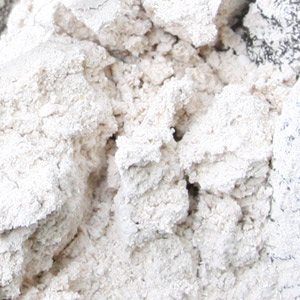
Lime is used in the garden to adjust the pH, simply put it makes acidic soils more alkaline. It is good for some plants, however not all.
What Lime does is raise the pH, know as making the soil ‘sweeter’.
Using Lime in the Veggie Garden
Lime is often recommended for vegetable gardens, however it is not good for all vegetables as some prefer an acidic soil.
Before applying lime it is a good idea to do a simple pH test to determine if it actually needed.
Veggies that do not like lime
- Peppers or Capsicums and chillies do not react well to lime.
- Potatoes, including Sweet Potatoes also do not like lime.
- Blueberry plant, Strawberries, and Raspberries also like a slightly acidic soil, as do grapes.
Veggies that like a little lime
- Peas and Beans however do like a slightly alkaline soil, so a little lime will help them along.
- Spinach is another that like a slightly alkaline soil
- All of the Brassicas like a pH of 6.6 – 7.7 so they do like lime.
- Onions like a little lime
- Carrots also like a slightly alkaline soil.
- Corm prefers a pH of between 5.8 and 6.5, so a little lime may be beneficial
When should Lime be applied ?
What lime does is ‘sweeten’ the soil, and in brief, all plants do not like lime, some love it.
- Best time to apply lime is in winter, this is so it does not create with the high nitrogen fertilisers which are mainly applied in spring to summer.
- Lime should not be used on soil that you intend to grow capsicums, potatoes, blueberry bushes and other acid loving plants.
This means we need to add lime to some areas of the garden, and not to others. It can affect crop rotation in vegetable gardens, as well as companion planting.
What is garden lime, should we use it, and how much should we use?
Lime is used to adjust the ph of soils, and for some plants this is essential. The amount of lime will depend on the pH of the soil, as well as the type of plants you are growing.
Also all lime is not the same, one we tested had an NV of 97.7, while another had an NV 70% and this is due to the the fineness of the lime. The lower NV of the lime, the more is needed for short term effectiveness.
Using Garden Lime In the garden
Compost
Applying lime to compost will speed up the composting process, Dolomite speeds up the breakdown of organic matter and also is said to aid microbial activity as well as reducing acidity in compost.
Application rate
This depends on the ph of the soil and what you want to change it to. The best thing to do is to test the ph of the soil and slowly add lime. Test every month to see the pH and you will soon get an idea of application rates for you particular situation.
As a rough guide between 80g and 160g per sq metre once a year, depending on the soil, the lime itself and the plants you are growing (more for veggies, less for flowers is a general rule). Instructions on the packet should give a better guide.
Keep away from Acid Loving Plants
Remember that some plants like acidic soils, Camellias, Azaleas, Rhododendrons, Citrus Trees are some. So no lime for these please.
Substitutes
The only substitute we know of is wood ash it will raise the ph of the soil, however you again need to monitor application test ph and apply at intervals
Can You Use Builders Lime?
Dolomite lime and Builders Lime are different things. Dolomite is a naturally occurring rock that is crushed to a fine powder, lots of calcium in it, slow acting and will gradually change the soil ph.
Builders lime is hydrated lime, made from limestone, but from ‘burnt lime’ which is heated to make it more concentrated and then hydrated with water, very reactive and likely to cause root burn if you are not careful.
Builders lime is sometimes called ‘slaked’ lime and we have seen articles saying its OK to use it, and it can be if you know what you are doing, it could be very big mistake to go and buy a bag from the hardware store and start throwing it a around the garden, just because it is cheap.
So, no builders lime for the garden, although the slow seepage from bricks and mortar can actually help the garden in some cases, in other cases it is a problem. This is often seen near brick houses, some garden beds thrive, others do not, test the ph for an insight.
So Dolomite is used to raise ph of gardens (reduce soil acidity), this is through the calcium that it releases, lacking in many Australian soils. Dolomite also has a fair amount of magnesium which aids chlorophyll production.
Agricultural lime, garden lime has more calcium and less manganese
You may also be interested in
